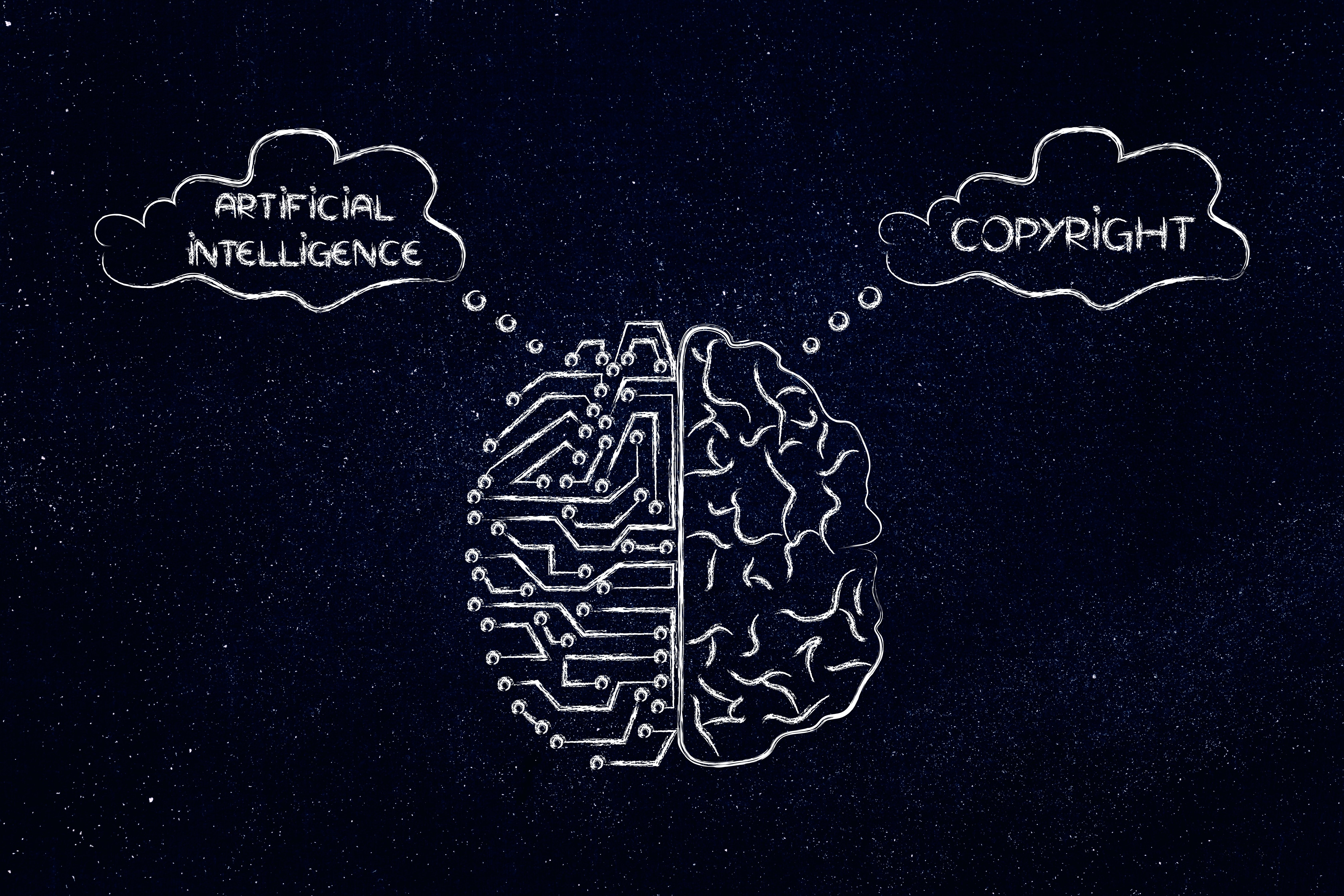AI and Copyright – where do we go from here?
by Sabrina Steele on 09 Sep 2025
As artificial intelligence continues to evolve at pace, the UK faces a difficult balancing act: how to support AI innovation while protecting the rights of creators. This tension boiled over in the debate over copyright and AI training as part of the Data (Use and Access) Bill passage.
With policymakers, tech firms and the creative industries still far apart — and the government yet to clarify its position — finding a workable solution is expected to be one of the UK’s most challenging digital policy issues over the next few months.
So what’s getting in the way?
This post looks at the key barriers to — and potential solutions for — a fair and enforceable copyright framework for AI.
Key challenges
Inconsistent industry engagement: The UK government established a new expert working groups in July 2025 which include Sony Music, OpenAI and the Press Association. However, this is the second working group created, with the first abandoned in 2023; and there’s been little clarity or transparency around concrete deliverables. We can expect engagement to pick up again over the coming months following the government’s commitment, as part of the Data Bill, to engage with creators as well as AI companies in finding a solution.
Unclear political direction: To date, the government has maintained it does not plan to change core copyright legislation — but, as floated in the AI and copyright consultation, has at the same time not ruled out bringing in exemptions for AI. These proposals faced huge criticism from creative industries and have been placed on hold, rendering the government’s position uncertain.
Growth vs. copyright protection: The government has placed AI at the heart of its economic and innovation strategy, committing to integrating AI across the public sector and strategic markets. But this pro-innovation agenda has at times seemed at odds with the need to protect creative rights. This applies particularly to sectors relying on copyright licensing for revenue and to a high proportion of independent and freelance workers.
Fundamental disagreements over the nature of AI training: A major challenge remains how different sectors perceive the role of copyrighted data in AI models. This makes a solution agreeable to both sides tricky AI developers argue that models don’t store data, and that any replication of copyrighted work is either accidental or non-substantive. Creative industries argue that copyrighted works used to train a model, even indirectly, should be treated — and the copyright owners compensated — as in any other licensing scenario.
Technical enforcement: Even if a clear legal framework is introduced, there are serious questions around enforcement. Many AI developers use massive, constantly evolving datasets like Common Crawl and The Internet Archive. For instance, Common Crawl has archived billions of web pages monthly since 2007. This raises challenges for AI developers around how they might identify and remove copyrighted content, or how audit or remove historic datasets and prevent future scraping of protected content. This is made harder by jurisdictional issues, with many web crawlers operating internationally and potentially beyond the UK’s regulatory remit.
Future of broader AI regulation: The UK government confirmed it will consult on sector-specific AI legislation. This is likely to involve priority areas for growth, such as healthcare, financial services and the public sector. It is expected to entail a light-touch, principles-based approach rather than prescriptive regulations. And yet, likely upcoming political actions also include plans for a comprehensive AI bill addressing copyright, among other issues, and the establishment of a cross-party parliamentary working group on copyright and AI.
Potential solutions
Although any copyright reform will likely be part of wider AI legislation, we expect to see some solutions brought in faster.
Codes or licensing agreements: AI developers and creative industries could sign joint agreements offering clear terms and fair renumeration for use of copyright material in AI development. Whilst this could be done through groups or management organisations, it would require significant infrastructure to be effective and enforceable. An alternative is an opt-out enabling creators to block AI web crawling. Here, too, implementation would require significant resource. Any in any case, either option is likely to apply only to datasets going forwards — and to be unable to address copyright materials contained within existing datasets.
An AI/industry levy: one option is that AI developers pay a statutory fee to a UK creator fund covering the use of any copyright material. Whilst this could address copyright material in past as well as future datasets, the question of funding will likely prove controversial.
Transparency: AI developers could be required to disclose further information around the use of training datasets and regarding their efforts to filter out and remove unlicensed copyright data. Whilst this alone would not solve the problem, it would improve the evidence base for the presence of copyright material in datasets and could support investigations or disputes.
Clarify the use of copyright data for alternative purposes: the government could clarify the use of copyright data for AI development: for example, whether copyright data can be used so long as the AI model does not replicate work. Such a caveat might be challenging to enforce, however, and the creative industries may deem it insufficient.
For several reasons, therefore, regulating AI’s use of copyright material will likely remain a difficult task. We expect the government to keep trying to incentivise voluntary solutions. The EU, for its part, has a clearer position: with transparency requirements, an opt-out and licensing schemes currently being negotiated. All this could provide useful examples for the UK and a starting point for establishing a future-proof regime.
If you would like to discuss AI and copyright in the UK, or to understand how this policy discussion may impact your business, please don’t hesitate to reach out.
Topics: UK politics, Artificial Intelligence (AI), Technology, copyright






Comments